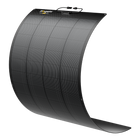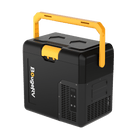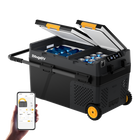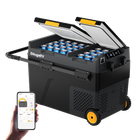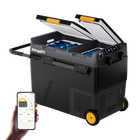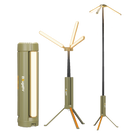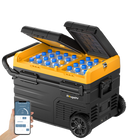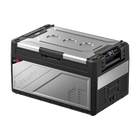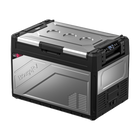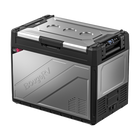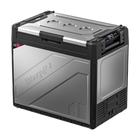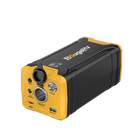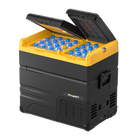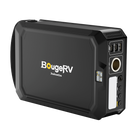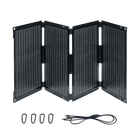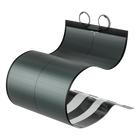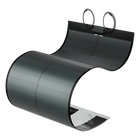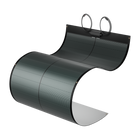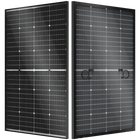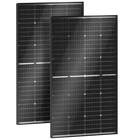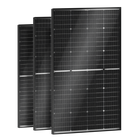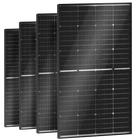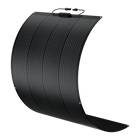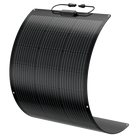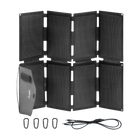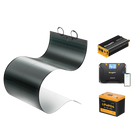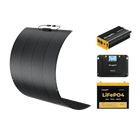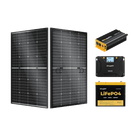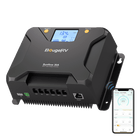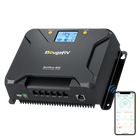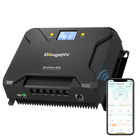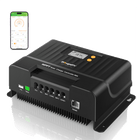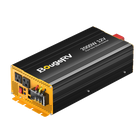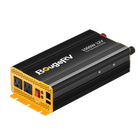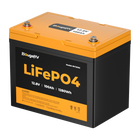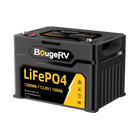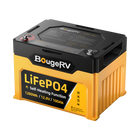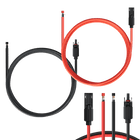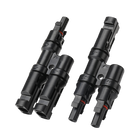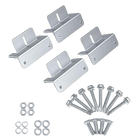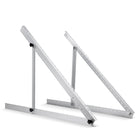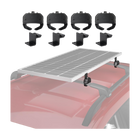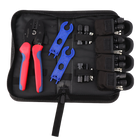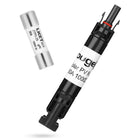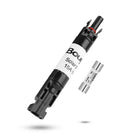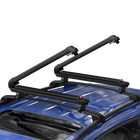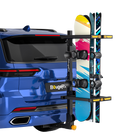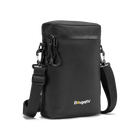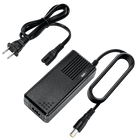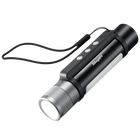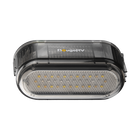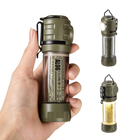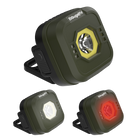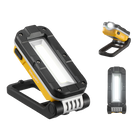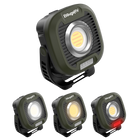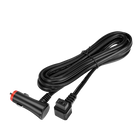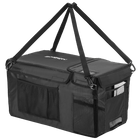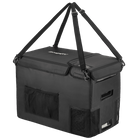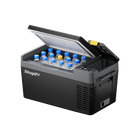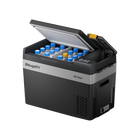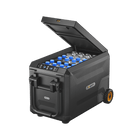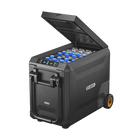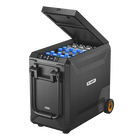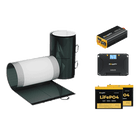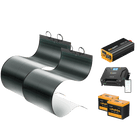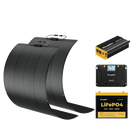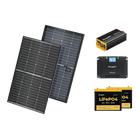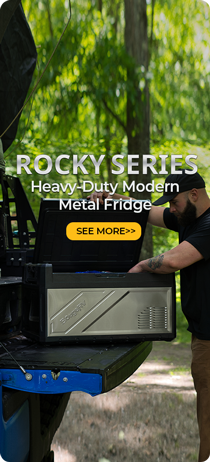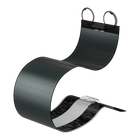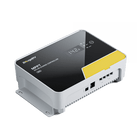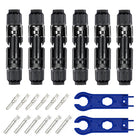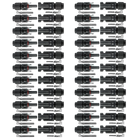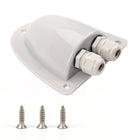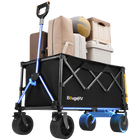Difference Between Military-Grade and Civilian-Grade Solar Panels: All You Need to Know!

Solar panels have become the cornerstone of modern renewable energy solutions, offering a sustainable way to harness endless solar power. In today’s market, there’s a spectrum of solar panel options out there for all kinds of uses and places. If you are considering installing solar panels for military vehicles and powering military equipment, understanding the differences between military-grade and civilian-grade solar panels is crucial for you.
In this blog post, we’ll dive into the differences between military-grade and civilian solar panels. We'll explore their design, efficiency, durability, and various applications, offering you a complete guide. Plus, you'll find out about some top-notch military-grade solar panels at BougeRV—the Paso CIGS thin-film solar panels.
Let's get started!
Side by Side Comparison Table
Here's a comparison table comparing features of both military and civilian solar panels:
|
Features |
Military-Grade Solar Panels |
Civilian-Grade Solar Panels |
|
Durability |
Extremely durable, |
Durable but less robust |
|
Cost |
High upfront cost |
More affordable |
|
Efficiency |
High-efficiency rates even in suboptimal conditions |
Efficiency varies |
|
Maintenance |
Lower maintenance needs |
Regular maintenance required |
|
Longevity |
Built to last for many years |
Generally have a shorter lifespan |
|
Weight & Portability |
Lightweight and highly-portable |
Varies |
|
Adaptability |
Operate effectively in various conditions |
Best suited for everyday uses |
|
Technological Features |
Enhanced photovoltaic cells and stealth features |
Standard technology |
*Advancements in technology can blur the lines between military and civilian-grade solar panels over time.
Military-Grade Solar Panels Overview vs. Civilian-Grade Solar Panels
Military-grade solar panels are precision-designed to withstand the most challenging conditions while maintaining high performance. These panels have to meet some seriously tough military standards—they've got to be super sturdy, work extra efficiently even when things get intense, and include security features. You'll usually find these high-grade panels at remote bases, with mobile units, in combat zones, or hooked up to communication gear in places where regular power is unavailable.
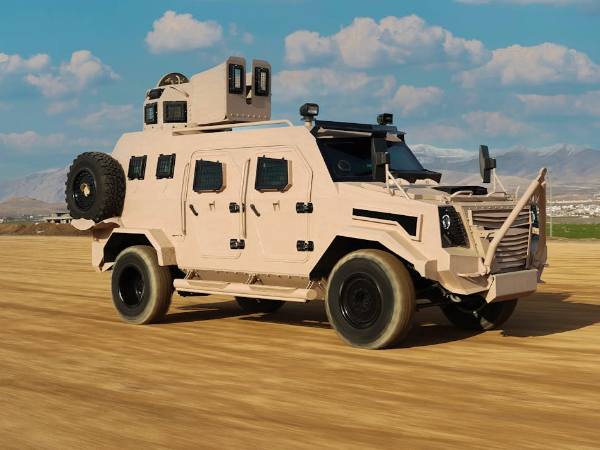
Civilian-grade solar panels, in comparison, are the standard option for homes, camping, recreational vehicles (RVs), and boats for off-grid power needs during travel, commercial use, agricultural operations, etc. They focus on providing an optimal balance between cost and performance, suitable for everyday uses where extreme conditions are not typically a concern.
7 Key Differences Between Military-Grade and Civilian-Grade Solar Panels?
1. Materials Used
Military-grade solar panels pack advanced cells that catch a ton of sunlight and are either mega-efficient or super-flexible for easy carrying. These solar panels are built tough with lightweight and sturdy materials that can take heat, mechanical stress, and rough handling without breaking a sweat. You can even fold or roll some up for quick moves. They're extra reliable as well because they have special circuits to ensure consistent power output, even if they get partially shaded or damaged
Civilian solar panels are cost-effective and reliable, typically built with standard silicon cells and aluminum frames. They're durable but skip the high-end military features to stay affordable for homes, RVs, and commercial installations.
2. Durability and Ruggedness
Military solar panels are tougher and more durable to handle the extremes of remote deployments, combat zones, disaster relief scenarios, etc. They can take a beating—from extreme temperatures to intense bumps and shakes—and still crank out steady power. These solar panels can also take on brutal conditions like sandstorms, heavy rain, salt fog, and even chemical spills.
On the other hand, civilian solar panels do a decent job against regular weather but might not cut it when things get really rough. They're made pretty solid, but when you talk military-grade, civilian modules just don't have that same beefiness or expected lifespan.
3. Efficiency and Performance

Military-grade solar panels are typically more efficient and stable, maintaining high performance even when partially shaded or dirty—unlike civilian panels, which might suffer significant efficiency drops. They are also able to deliver stable output in extreme conditions such as desert heat, jungle humidity, and Arctic cold and withstand challenging situations like sandstorms, heavy rain, and snow buildup that could compromise civilian models.
4. Portability
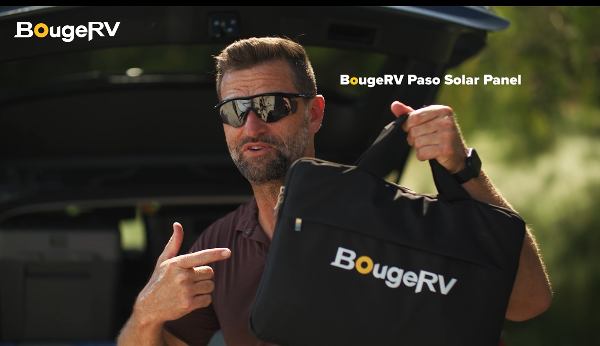
Military solar panels are typically lighter and easier to deploy rapidly, often featuring a foldable design for enhanced portability by troops in the field. In contrast, civilians may prioritize fixed installations where portability isn’t as crucial.
5. Security Features
Military solar panels are like top-secret tech: they've got anti-tampering features and encryption to keep data safe. They stay cool to dodge enemy radars and are tough enough to shrug off bullets. Plus, some models are decked out in special coatings to reduce glare and provide camouflage.
6. Customization
Military panels offer higher levels of customization to fit specific applications or integrate with certain military equipment, whereas civilian panels are mass-produced with standardized dimensions and specifications.
7. Availability
Military-grade panels are often subject to availability restrictions and may not be easily accessible to the public. Civilian-grade panels are widely available in the market.
8. Cost
Military solar panels are pricier upfront because they're packed with advanced tech and tough materials. But as we mentioned earlier, military panels are incredibly sturdy, meaning they need less maintenance or replacement over time. Civilian ones are cheaper and made for everyday use.
Application and Usage Scenarios

Typical Military Applications
As mentioned, military-grade solar panels are more robust than civilian versions. They can withstand harsh environments and provide reliable power for various military applications, including:
-
Deployable Power Systems: For powering mobile power stations, communication devices, GPS units, laptops, and other electronic gear in remote locations.
-
Unmanned Vehicles: Used in UAVs, UGVs, and UUVs to extend operational range and reduce refueling or recharging needs.
-
Tactical and Support Vehicles: On military vehicles, from jeeps to tanks, and support vehicles, solar panels assist onboard power generation for electronics and reduce idling when stationary.
-
Surveillance and Reconnaissance: Military-grade solar panels can power remote sensors, cameras, and listening devices for long-term intelligence gathering without frequent battery replacements.
-
Electronic Warfare Systems: Supplies energy to jamming devices or signal detectors, tailored to their specific power needs.
-
Forward Operating Bases: Temporary bases can benefit from solar panels by reducing their reliance on fuel generators and improving stealth capabilities, which can be logistically challenging and risky to transport in conflict zones.
-
Field Medical Facilities: For expeditions and humanitarian missions, custom solar panels can provide a vital source of power for medical tents, refrigeration of medicines and vaccines, and operating medical equipment in areas without grid power.
-
Soldier Power Packs: Portable solar chargers allow individual soldiers to recharge batteries for personal communication devices, navigation units, and night-vision goggles while on patrol.
-
Base Camp Services: Beyond tactical needs, solar panels can also support non-combat operations at base camps, such as lighting, heating, cooling, and powering other quality-of-life services for soldiers.
In each case, you may need to customize the size, shape, voltage output, connection interfaces, ruggedization, or other specifications to ensure the solar panels fit right in with the military gear they're meant to power.
Common Civilian Applications

Now let’s break down the common places where civilian-grade solar panels are used:
-
Recreational vehicles (RVs) and boats: These panels provide off-grid power during travel.
-
Portable solar generators: Ideal for camping, tailgating, and outdoor activities where traditional power sources are unavailable.
-
Residential homes: Solar panels help reduce electricity bills and increase energy independence.
-
Agricultural operations: Used to power water pumps, lighting, and other farm equipment.
-
Public infrastructure: Solar panels can be found in streetlights, traffic signals, and electric vehicle charging stations.
-
Remote areas: Where connecting to the electrical grid is impractical or too expensive.
-
Community solar projects: The civilian-grade solar panels allow multiple individuals to benefit from a single, large-scale solar installation.
-
Emergency power supply: Used for disaster relief and backup during grid failures.
BougeRV’s Rugged Military-Grade Solar Panels: Paso CIGS Thin-Film Solar Panel
Are you searching for a solar panel that can handle tough conditions and harsh environments, just like the military does? Look no further than BougeRV’s Paso CIGS thin-film solar panels for military vehicles and powering military equipment. These solar panels are built tough, incorporating all the high-quality features necessary for heavy-duty jobs:
- IP65 waterproof rating
- 360° flexible, glass-free, crack-resistant, and impact-resistant
- Operating temperature range of -40℉ to +185℉ (-40℃ to +85℃)
- 9BB busbars enhance power generation efficiency
- CIGS thin-film solar cells and unique bypass diodes ensure stable output even in challenging conditions
- Thinner and lighter than rigid glass solar panels
- Foldable and compact design for easy mobility and storage
- Non-reflective and low-profile black solar panels
- Metal mounting hole for easy use
- Weather-proof and durable packaging
- Widely compatible with various energy storage options
Exciting Announcement!

Calling all heroes in uniform who’ve served: we salute you! We recognize the sacrifices you’ve made and the courage you’ve shown. To show our immense appreciation, we’re thrilled to roll out an exclusive 18% discount on our premium Paso solar panels for the entire military community.
Getting your well-deserved discount is as easy as 1-2-3:
-
Head over to SheerID and fill out the quick verification form to confirm your military status. And good news – this offer isn’t just for those currently serving; it also extends to military dependents, veterans, reservists, and members of the National Guard.
-
Once you’re verified, SheerID will send you a unique, one-time promo code meant just for you.
-
Then, all that’s left is the fun part—shopping for your new Paso solar panels! Punch in that promo code at checkout to snatch up your savings.
We believe there’s no better way to express our heartfelt “thanks” than by helping you harness solar power with a sweet deal. Unlock this military-only deal right now!
Final Thoughts
Alright, let's break it down: Military-grade vs. civilian solar panels – what sets them apart? It's the build quality, how efficient they are, and what you're planning to use them for. Military panels are tough cookies, made to endure some pretty harsh environments, whereas civilian panels are all about giving you the most bang for your buck in everyday situations.
On the hunt for some solid, military-grade solar panels to juice up your military equipment? Check out our Paso CIGS solar panels – they're available now!





